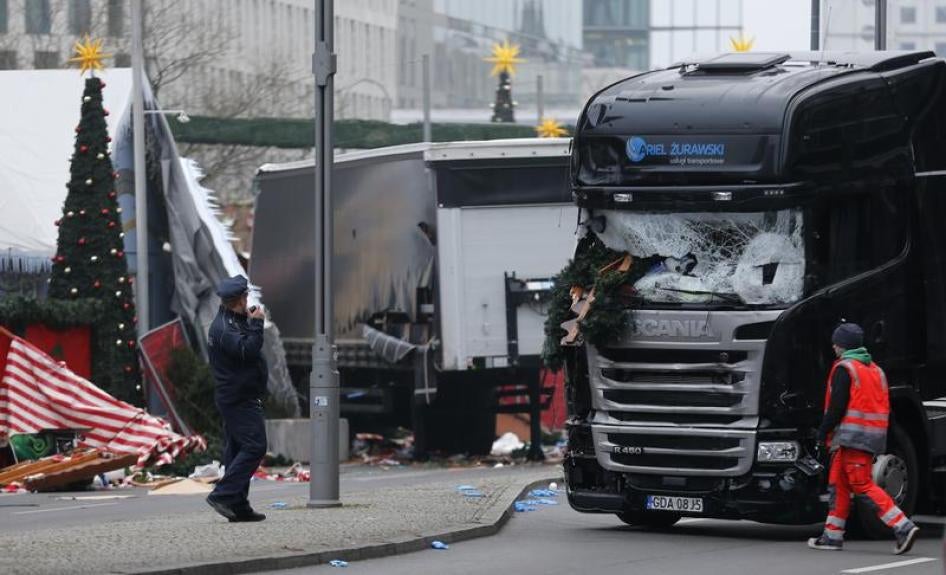On Monday night a truck ploughed through a Berlin Christmas market. After the attack, that killed 12 people and injured 48 others, a strange silence fell over Berlin. The streets were deserted, and trains and buses were almost empty.
Berlin, it seemed, was prepared for such an attack. People returned home calmly. There was no sense of panic. At Breitscheidplatz, the crime scene, police arrived within minutes and took control. Eyewitnesses said the police officers were firm but friendly.
Many Berliners had the same thought and many said it out loud: “Please don’t let this be an Islamist terror attack.” Officials were just as cautious about speculation. On Twitter, the police asked the public not to spread rumours. Speaking on TV overnight, with investigations still ongoing, Federal Interior Minister Thomas de Maiziere refused to bandy about the label terrorism. “You see, the choice of words will have a psychological effect for the whole country,” he explained.
These calm initial reactions – from the police, from local and central government, and from Berliners themselves, were laudable and remarkable. But one corner of German politics sprung into action with commentary as despicable as it was predictable: the xenophobic populists.
“These are Merkel’s dead,” a leading figure of the populist AfD party tweeted after reports that the alleged attacker may have been an asylum seeker. And several politicians of the right wing CSU party called for a tightening of Germany’s current refugee policy.
Chancellor Angela Merkel acknowledged that it would be “particularly hard to bear for all of us if it was confirmed that a person committed this crime who asked for protection and asylum in Germany.” But to blame Merkel’s humane refugee policy is cynical. German security forces have prevented a number of similar potential attacks, including some long before the dramatic increase in numbers of people seeking protection began in 2015.
I live a ten-minute walk from Breitscheidplatz. My nephew was at this very Christmas market just an hour before the rampage began. For me, this attack was literally close to home, and I appreciate the need to feel safe.
But we should never forget that kneejerk reactions may restrict the rights not just of refugees and other minorities, but of the general public too. It’s too soon to say how Germany will react to this shocking event. But if there is a crackdown against certain groups, then demagogues will be one step closer to their goal of damaging a democracy based on the rights and freedom and dignity for all. Total safety doesn’t exist. But a total shut down of one’s rights does.
The measured reaction of Germany’s police and government following this attack has been commendable, and it’s this approach that should guide any further response.









